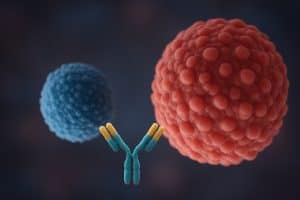Genes in Space – you don’t need a lab coat to cure cancer
pharmafile | February 18, 2014 | News story | Medical Communications, Sales and Marketing | CRUK, Cancer, app, digital, games, genes in space
As the UK’s leading cancer research charity launches a new gaming app for smartphones, Pharmafile talks to CRUK about just how playing Genes in Space may help cure cancer.
In February Cancer Research UK launched its new app Genes in Space to much fanfare, that included its own Twitter hashtag #genesinspace with CRUK staffers live tweeting the event.
The game uses the ‘collective force’ of players around the world to analyse significant amounts of real genetic data.
The app uses the ideas of both gamification and crowdsourcing – concepts that have become a major part of many industries’ business strategy, and one that has even started to filter into pharma with the 2012 launch of Boehringer’s Facebook game Syrum.
Commercially these types of apps and games are about one thing: promotion of the business and bringing in more money – and on the surface you could be led to believe that this is what CRUK is doing with its latest venture – but on closer inspection, it is aiming for a far greater goal: to cure cancer, no less.
But just what prompted a charity to create a game designed not at gaining more donations, but actually built to help their scientists rid the world of its most feared disease?
Hannah Keartland, citizen science lead for Cancer Research UK, explains to Pharmafile: “Our scientists have huge amounts of data that they need to analyse. A lot of this analysis needs to be done by the human eye – whilst computers do exist they just aren’t accurate enough. And so, the only way of accelerating our research is by getting more eyes looking at the data.
“We used our first product (Cell Slider) to test whether we could use crowd-sourcing to get the general public to help our scientists analyse this data. The initial indications are that they can and that they can do this analysis a lot quicker than scientists.
“Our citizen scientists used Cell Slider to analyse data six times faster than it would take pathologists – in just three months they had analysed data which would have taken a pathologist 18 months. So we decided to do something much more ambitious.
“We’d noticed the number of people who play mobile phone games – what if they could analyse cancer data at the same time? The potential to accelerate research could be mind-blowing.”
Genetic data in the game
Keartland says that this will help research at the charity in a number of ways, as when someone plays Genes in Space they have to steer a spaceship through the densest parts of ‘space dust’ – the path that a gamer traces as they drive the spaceship is what is helpful to CRUK scientists.
“The location of the space dust in the game is actually determined by a map of genetic data in cancer cells,” she says. “The path that you map will help our scientists to understand where there are faults in the genes of cancer cells. This could help them to develop new diagnoses or treatments.”
And it is proving popular it would appear. These stats are moving all the time, but the highest position CRUK has reached with its app at time of publication and since launch has been:
• 21st in iTunes Games
• 2nd in iTunes Adventure Games
• 9th in iTunes Action Games
• 46th iTunes app.
Keartland says that they are ‘really pleased’ with these figures because it shows that lots of people are downloading the game – and the more people who play, the faster CRUK will get through the data.
Also they are not looking to rest on their laurels as following the success of Cell Slider and Genes in Space, CRUK told Pharmafile that it is currently working on a new strategy for its citizen science activity. “We think that the potential for the general public to help us accelerate our research is huge,” Keartland says.
When asked if this type of crowd-sourcing is the way forward for data analysis – and also a good way of promoting what CRUK does, Keartland says that crowd-sourcing “could have a really important role to play in carrying out analysis that needs to be done by the human eye”.
She adds: “We’re also really excited that this enables the general public to get involved in our research – you don’t have to wear a lab coat to get involved in accelerating cancer research!”
Ben Adams
Related Content

Central nervous system cancer metastases – the evolution of diagnostics and treatment
The current forms of immunotherapy, how T cell therapy works and what the future holds

BioMed X and Servier launch Europe’s first XSeed Labs to advance AI-powered antibody design
BioMed X and Servier have announced the launch of Europe’s first XSeed Labs research project, …

T-cell therapy – the evolution of cancer treatments
The current forms of immunotherapy, how T cell therapy works and what the future holds






